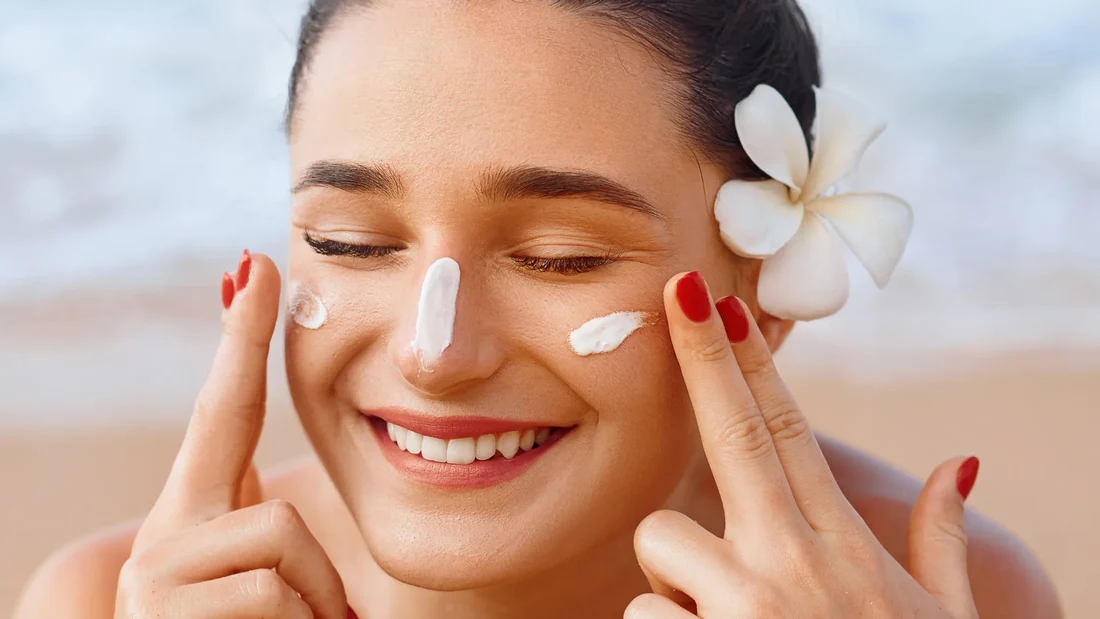Sunscreens protect us from sunburn and can reduce the risk of skin cancer and premature aging, but how exactly do they work?
Navigating the skin-care aisle can be daunting. Products claim to rejuvenate, exfoliate, hydrate, soothe and correct skin concerns – how can you select one suitable for yourself? Continue reading this blogpost about sunscreens to gain more knowledge.
What is Sunscreen?
Sunscreen serves to protect skin from UV radiation by absorbing, reflecting and scattering its rays. Furthermore, sunscreen limits how much UVA and UVB reach our skin and may help lower risk of sun damage and some forms of cancer.
Sunscreen comes in different formats such as lotion, cream, gel and spray. Each type has its own set of advantages and disadvantages; choosing the appropriate sunscreen depends on factors like skin type, age and whether or not taking medication makes you more susceptible to the sun’s rays.
Chemical sunscreens (containing ingredients such as avobenzone, oxybenzone or octinoxate ) absorb UV radiation and convert it to heat so your skin won’t absorb or be damaged by it. Meanwhile, physical sunscreens such as zinc oxide or titanium dioxide reflect back the sun’s rays rather than absorbing them directly; both types should be applied frequently – particularly before swimming or sweating sessions – for maximum efficacy.
How do Sunscreens Work?
Sunscreens are designed to reflect, absorb and scatter UVA and UVB rays before they cause irreparable skin damage. Both types of rays play an important role in premature skin aging as well as sunburns that could even progress to cancer over time.
Chemical sunscreen ingredients like octyl methoxycinnamate, avobenzone, and oxybenzone work by absorbing UVB radiation to convert it to heat; physical sunscreens like titanium dioxide and zinc oxide work by covering the skin like a shield while reflecting and scattering light back at its source.
Mineral and chemical sunscreens should be worn daily to decrease the risks of sunburn, wrinkles and cancer of the skin. But it’s essential to reapply frequently since some medications and conditions make your skin more vulnerable and require increased levels of protection from UV rays. It’s also wise to limit how long you spend outdoors and wear protective clothing like hats and long sleeves as much as possible.
What are the Side Effects of Sunscreen?
Sunscreen is essential in warding off the harmful rays of the sun and protecting against its UV radiation which can cause cancer, wrinkles and premature aging of skin cells. Sunscreens are highly recommended by both the Food and Drug Administration, the Centers for Disease Control and Prevention as well as numerous medical associations.
Sunscreen reactions are generally uncommon and typically result from sensitivities or allergies to one of its ingredients, leading to symptoms like contact dermatitis, itchy or watery eyes or skin and more severe reactions such as rashes or hives.
Studies have revealed that certain sunscreen chemicals, including oxybenzone and octinoxate, may be absorbed through the skin into the bloodstream and may pose risks of toxicity for some users. If possible, consumers should select sunscreens without these harmful elements as this will ensure optimal protection from exposure.
What is the Best Sunscreen?
There is no ideal sunscreen – many contain chemicals that could damage aquatic life or disrupt skin’s natural barrier function. Luckily, non-toxic formulas provide sufficient UV protection without harming aquatic ecosystems. You should select a product that makes application and reapplication easy – particularly during sweaty conditions or when becoming damp.
This light, tinted foundation is safe for all skin types (although darker-toned testers experienced a slight white cast). Its lightweight tinted formula blends evenly without leaving an offensive scent behind; making it the ideal pick if makeup wear is part of daily life.
All Good is an all-natural formula made with zinc oxide, shea butter and vitamin E for noncomedogenicity and fragrance free use, ideal for sensitive eyes as it doesn’t sting. All Good also offers an easy and mess-free stick version which makes application effortless – ideal for touchups on the face! Rich with antioxidants to prevent UV-induced aging and damage as well as reef safe sun protection (SPF 30) plus aloe to soothe sensitive skin!




